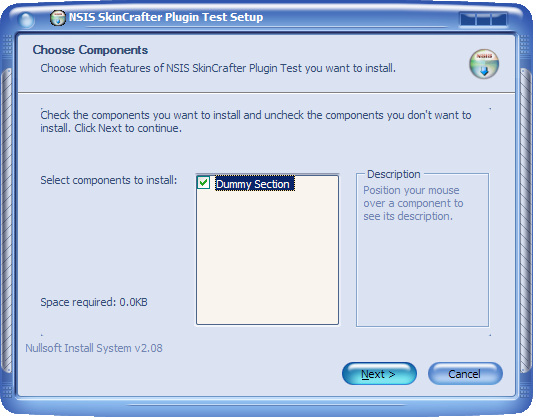Skincrafter Dll Download

MJWhiteman2 17-Feb-05 0:44 17-Feb-05 0:44 I'm trying to use some Excel COM from Visual C++, but am having difficulty calling certain functions. For example, take the WorkSheets.Add method. The function declaration is as follows: LPDISPATCH Add(const VARIANT& Before, const VARIANT& After, const VARIANT& Count, const VARIANT& Type); By looking in the Excel VBA Help, I can get documentation for this method: Add Method (Worksheets Collection) Creates a new worksheet.
The new worksheet becomes the active sheet. Returns a Worksheet object. Syntax expression.Add(Before, After, Count, Type) expression Required. An expression that returns a Worksheets object.
Before Optional Variant. An object that specifies the sheet before which the new sheet is added. After Optional Variant. An object that specifies the sheet after which the new sheet is added. Count Optional Variant.
It’s pretty worth enough for me. Kommercheskoe predlozhenie na okazanie auditorskih uslug obrazec. Interesting info over here.
The number of sheets to be added. The default value is one. Type Optional Variant. The sheet type. Can be one of the following XlSheetType constants: xlWorksheet, xlExcel4MacroSheet, or xlExcel4IntlMacroSheet. The default value is xlWorksheet.
Remarks If Before and After are both omitted, the new sheet is inserted before the active sheet. OK, now for some example code. I can add a new worksheet quite easily using the following code: // After obtaining a Worksheets object, called ws: COleVariant VOptional(( long)DISP_E_PARAMNOTFOUND, VT_ERROR); ws.Add(VOptional, VOptional, VOptional, VOptional The problem is that this default usage inserts the sheet before all current sheets in my workbook, but I want to insert it after all the other sheets.
Programs similar to SkinCrafter (ActiveX+DLL) 2.6.0 SkinCrafter (ActiveX+DLL) 2.6.0 video tutorials, setup and demos Download SkinCrafter (ActiveX+DLL) 2.6.0 User Opinions on SkinCrafter (ActiveX+DLL). Bricscad license key serial number.
In Excel VBA, I can do this by simply running: Worksheets.Add.Move after:=Worksheets(Worksheets.Count) However, I'm having real trouble finding what the data type of the 'After' argument needs to be in C++ and I can't find any sample code anywhere! I have found hundreds of examples passing numbers or strings, but not objects! Can anyone supply some sample code? Using the _Worksheet.Move method would also accomplish the same thing, but I have the same problem, so any help would be greatly appreciated! Just in case anyone needs to do this, I figured out how to do it.
The 'after' parameter needs to represent the IDispatch pointer of the worksheet you want to add the new sheet after. So you have to do something like this: // Create a COleVariant to reference an object. The m_lpDispatch member gives a // pointer to the IDispatch interface of an object. The type must be VT_DISPATCH COleVariant var; var.vt = VT_DISPATCH VT_BYREF; var.ppdispVal = &(objSheet.m_lpDispatch); // Add the new sheet AFTER the sheet referenced in 'matt' sheet = objSheets.Add(VOptional, var, VOptional, VOptional); In the above, objSheets is of type Workbooks and objsheet and sheet are of type _Worksheet. Ravishanker 16-Feb-05 17:17 16-Feb-05 17:17 I have a windows service which creates another process after it is started. Now in the process that is created i create a COM object with an interface and few methods on it. Now if I run the Service with a Login I can access the interface of the COM object by regisrtering the interface in running object table and then getting it from there in the main service.
How ever if I run the servcie with LocalSystem account I cannot get the Interface pointer from the Running object table What could be the problem? Is there another way of doing this Thanks Ravi. Trankil 16-Feb-05 6:26 16-Feb-05 6:26 Hi! (Excuse-me, I hope that this message, will not be inserted inside the current discussion. I want to post a new message, a new discussion, but I don't know how to do.Here is my purpose) I have developped a software which manage modem through serial communications. That is why, I have imported the component MSComm32.ocx in my application.
I have used.NET for my purpose. The installer application is defined to register the component MScomm32 into the computer (A) on which we make the installation. At this stage, there is no problem, the installation of my application is successful.
But when I launch my application, there is a fail; N.B.: The component MSComm32.ocx is inside the environnement Visal Basic 6.0, but not inside Visual Basic.NET developpement environment. After the fail, I have installed VB 6.0 on the computer (A).